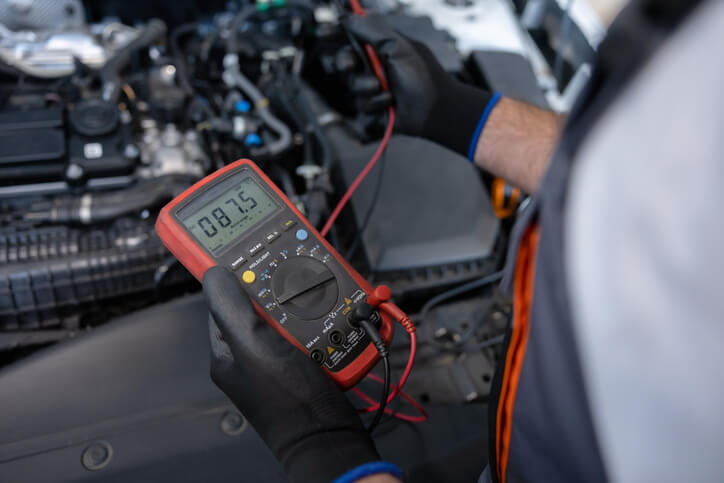Tools of the Trade: 8 Essential Tools You’ll Use in Automotive Training
Stepping into the shop for auto mechanic training means more than just learning theory. You’ll spend countless hours with tools in your hands. These tools are the foundation of every repair, inspection, and adjustment you’ll perform, helping you translate classroom lessons into practical skills.
At CATI, our automotive training ensures that students master the most important equipment they’ll use throughout their careers. From traditional hand tools to advanced diagnostic devices, here are ten essentials every aspiring mechanic will encounter during training.
1. Wrenches and Ratchets
Every mechanic’s toolbox begins with wrenches and ratchets. Whether tightening bolts or loosening stubborn fasteners, these tools are indispensable. In training, you’ll learn when to use each size and type, and how proper technique ensures safety and efficiency in the shop.
2. Screwdrivers
Simple yet essential, screwdrivers come in multiple shapes and sizes. They’re used for removing panels, adjusting components, and securing fittings. Students quickly discover how often these tools come into play across all types of vehicles.
3. Torque Wrench
A torque wrench ensures bolts and nuts are tightened to the manufacturer’s exact specifications. Over-tightening or under-tightening can cause major issues, so accuracy is critical. During auto mechanic training, you’ll practice achieving the correct torque every time.

4. Pliers and Wire Cutters
From gripping and twisting to cutting and bending, pliers and wire cutters help with a wide range of tasks. You’ll use them for electrical repairs, hose clamps, and even precision work in tight spaces.
5. Jacks and Jack Stands
No automotive training would be complete without learning how to safely lift a vehicle. Jacks raise the car, while jack stands keep it stable during inspections and repairs. Safety procedures with these tools are among the first lessons you’ll master.
6. Diagnostic Scanner
Modern vehicles rely heavily on electronic systems. Diagnostic scanners read error codes from the car’s onboard computer, helping you pinpoint problems quickly. As part of CATI’s auto mechanic training, you’ll become familiar with using scanners to troubleshoot everything from engine lights to sensor failures.

7. Multimeter
A multimeter is an electrician’s best friend, and a mechanic’s too. It measures voltage, current, and resistance, making it essential for diagnosing electrical problems. You’ll practice using multimeters to test batteries, wiring, and electronic circuits.
8. Oil Filter Wrench
Changing oil is one of the most common maintenance tasks, and an oil filter wrench makes it much easier. This tool allows you to remove filters quickly and without damage, a small but important skill for efficiency in any shop.
Why These Tools Matter During Auto Mechanic Training
These ten tools represent more than just equipment. At CATI, they’re directly tied to your training modules. For example, you’ll use torque wrenches and diagnostic scanners in engine and electrical systems courses, while multimeters and pliers become essential in the electrical and electronics module.
Jacks, stands, and safety gear are introduced right from the first hands-on workshop, reinforcing the importance of safe practices from day one. By working with these tools throughout your automotive training, you’ll gain not only technical skill but also the confidence to step into a professional shop fully prepared.
The CATI Difference
Mastering the right tools is one of the most important parts of auto mechanic training. From torque wrenches to diagnostic scanners, each one teaches you something essential about working with vehicles safely and effectively. At CATI school, you’ll receive hands-on instruction with all these tools and more.
Our programs emphasize real-world practice, so you’re not only learning how tools work but also understanding when and why to use them. This practical experience ensures you’re prepared for the realities of the workplace from your first day on the job.
If you’re ready to take the first step, explore the opportunities waiting for you at CATI school.
Contact us for more information.

